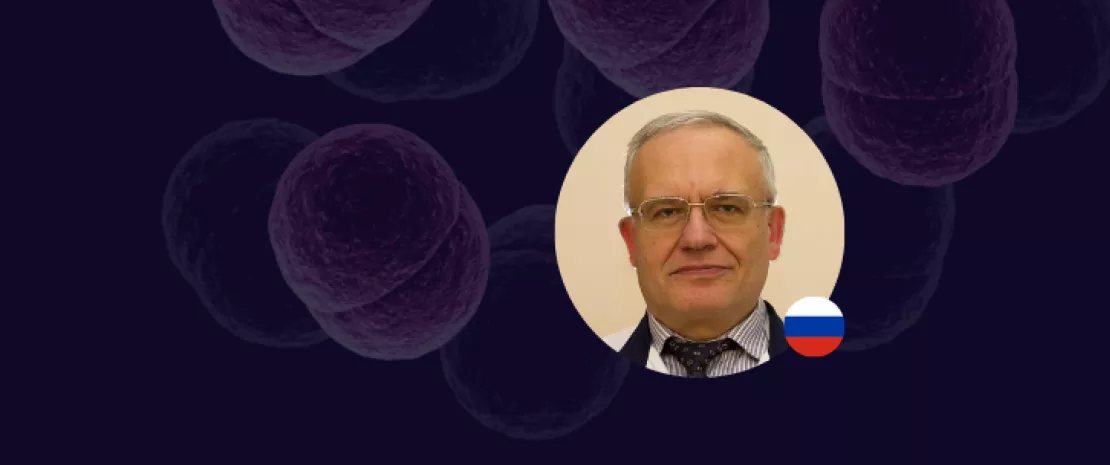Pr. Shifrin (Russian winner 2020): Gut microbiota & antibiotics
To celebrate #WorldMicrobiomeDay, the Biocodex Microbiota Institute is handing the floor to national grant winners.
Lay public section
Find here your dedicated section
Sources
This article is based on scientific information
Sections

About this article
Pr. Oleg Shifrin
Gastroenterologist of the highest qualification category, Head of the department of chronic diseases of the intestines and pancreas of the University Clinical Hospital No. 2, Doctor of Medical Sciences, professor of the department of propaedeutics of internal diseases, gastroenterology, and hepatology of the First Moscow State Medical University (Sechenov University, Russia).
A member of the group for the development of national clinical guidelinedccc ccs. Fields of interest: diagnostic concept of "pancreatic steatosis" and "steatopancreatitis", clinical relationship between pancreatic steatosis and metabolic syndrome; clinical relationship between the onset of IBD and the further course of the disease to develop personalized patient management scheme; prevalence and clinical features of Helicobacter pylori and clostridial infections in patients with ulcerative colitis.
What has the national grant allowed to discover in your microbiota research area?
The national grant made it possible to study in detail the effect of antibiotic therapy on the qualitative and quantitative changes in the composition of the intestinal microbiota, as well as on the concentration and spectrum of bacterial metabolites - short-chain fatty acids. The effect of antibiotic therapy on selective intestinal permeability was studied for the first time. A relationship has been established between antibiotic therapy and the occurrence of symptoms characteristic of functional diseases of the gastrointestinal tract.
Antibiotics are an extraordinary scientific discovery that saves millions of lives but their excessive and inappropriate use has now raised serious concerns for health, notably with antibiotic resistance and microbiota dysbiosis. Let’s take a look at this dedicated page:
The ambivalent role of antibiotics
What is the World AMR Awareness Week?
Each year, since 2015, the WHO organizes the World AMR Awareness Week (WAAW), which aims to increase awareness of global antimicrobial resistance.
Held on 18-24 November, this campaign encourages the general public, healthcare professionals and decision-makers to use antimicrobials carefully, to prevent the further emergence of antimicrobial resistance.
What are the consequences for the patient?
It is expected that the results of the project will make it possible to determine an additional pathogenetic mechanism for the formation of symptoms of functional gastrointestinal diseases and become the basis for developing the optimal way to prevent it



